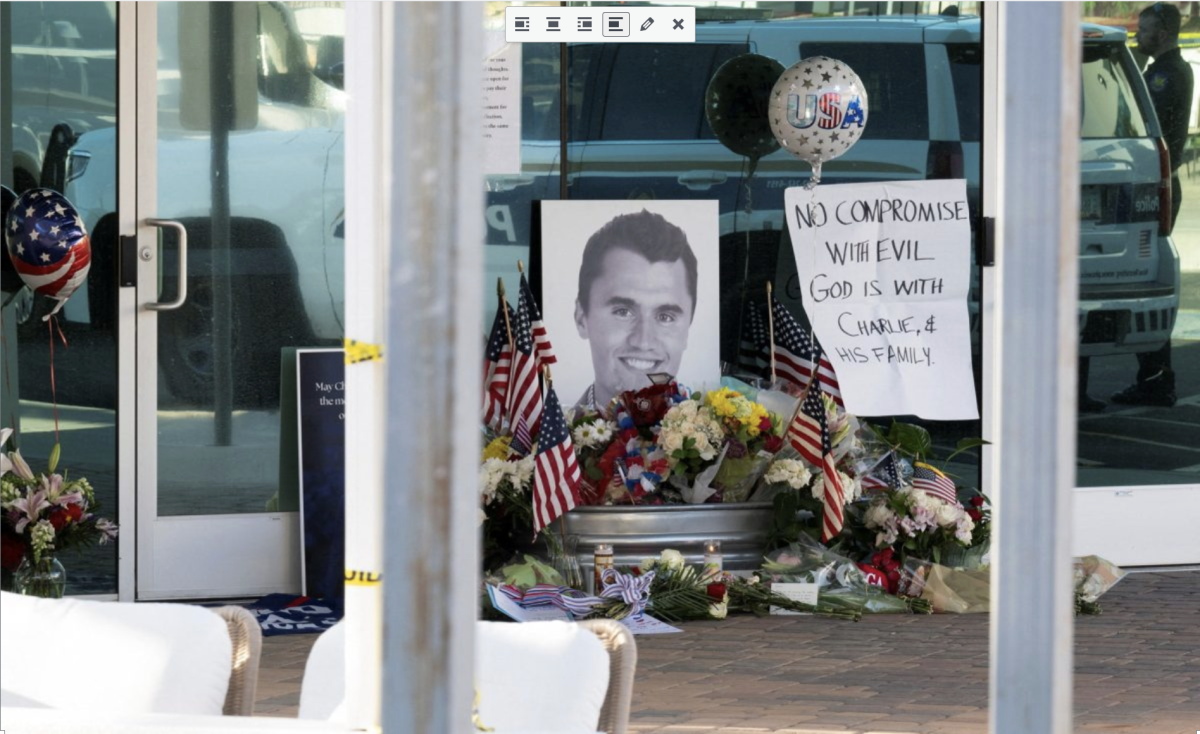On the Utah Valley University campus, hundreds of students and faculty gathered for a campus debate about America’s future with Charlie Kirk, conservative activist, media personality and co-founder of Turning Point USA. Most attendees responded to Kirk’s political views with questions, pushing Kirk to defend his beliefs and engage in dialogue. But one responded with a rifle, 200 yards away.
Kirk was fatally shot in the neck at Utah Valley University at the age of 31. He was on the first stop of his “American Comeback Tour,” a tour where he would invite debate on college campuses, according to the New York Times. Video footage captured this horrifying moment, bringing into sharp reality how deeply political violence has been ingrained in American society.
We must confront the reality that today’s political climate has taken a violent and dangerous turn. From assassination attempts against President Trump in 2024 to the fatal shooting of Minnesota lawmaker Melissa Hortman in 2025, the pattern is unmistakable. A shocking 25% of Americans feel that political violence is justified, which is an increase from 15% in 2021 (Brookings Institution).
The raw shock of this shooting lies not only in its brutality, but in what it signifies. Kirk, a figure loved by millions on the right and disliked by even more on the left, was a symbol of political discourse in a time of polarization.
Kirk was notable for the way in which he encouraged those who disagreed with him to engage in intense discourse, never physical violence. In fact, he built his career around engaging young Americans in the political process debates through open mics at university campuses. Many students disagreed with his positions, but his willingness to step into public areas, field questions and face opposition embodied a key facet of democracy: that ideas must be debated instead of destroyed.
It is this culture of open dialogue that we must preserve, and that his assassination threatens. The strength of our democracy lies not in unanimity but in our ability to disagree. Violence is never the answer; discussion is. Especially in the midst of record-high polarization, reaching 88.55, according to a Vanderbilt University study. When we refuse to hear out people we disagree with, we start to see them as evil or lesser. Kirk’s murder is an unfortunate example of where polarization led to extremism and, as we have seen, violence.
Kirk’s videos dominated our generation’s social media feeds, with discussions engaging large groups of young viewers. Regardless of whether or not people agreed with his beliefs, he was a master of dialogue in the face of brutality. His violent death is such an eerie reversal of his love for political discourse.
His death must be treated with grief and respect from all sides of the political spectrum. In his memory, we urge our generation not just to be open to civil debate, but to seek it out. Show the country that free speech can not be silenced by a rifle. Use the gifts democracy affords us: the freedom to disagree, the ability to work out problems bipartisanly and to stay rooted in values while holding respect for the other side.
Let his death be a solemn reminder: if we are not willing to disagree with dignity, we risk normalizing this violence and losing the fragile fabric of our democracy.
This story was published in The Lion’s Tale on Sept. 11, 2025.


















